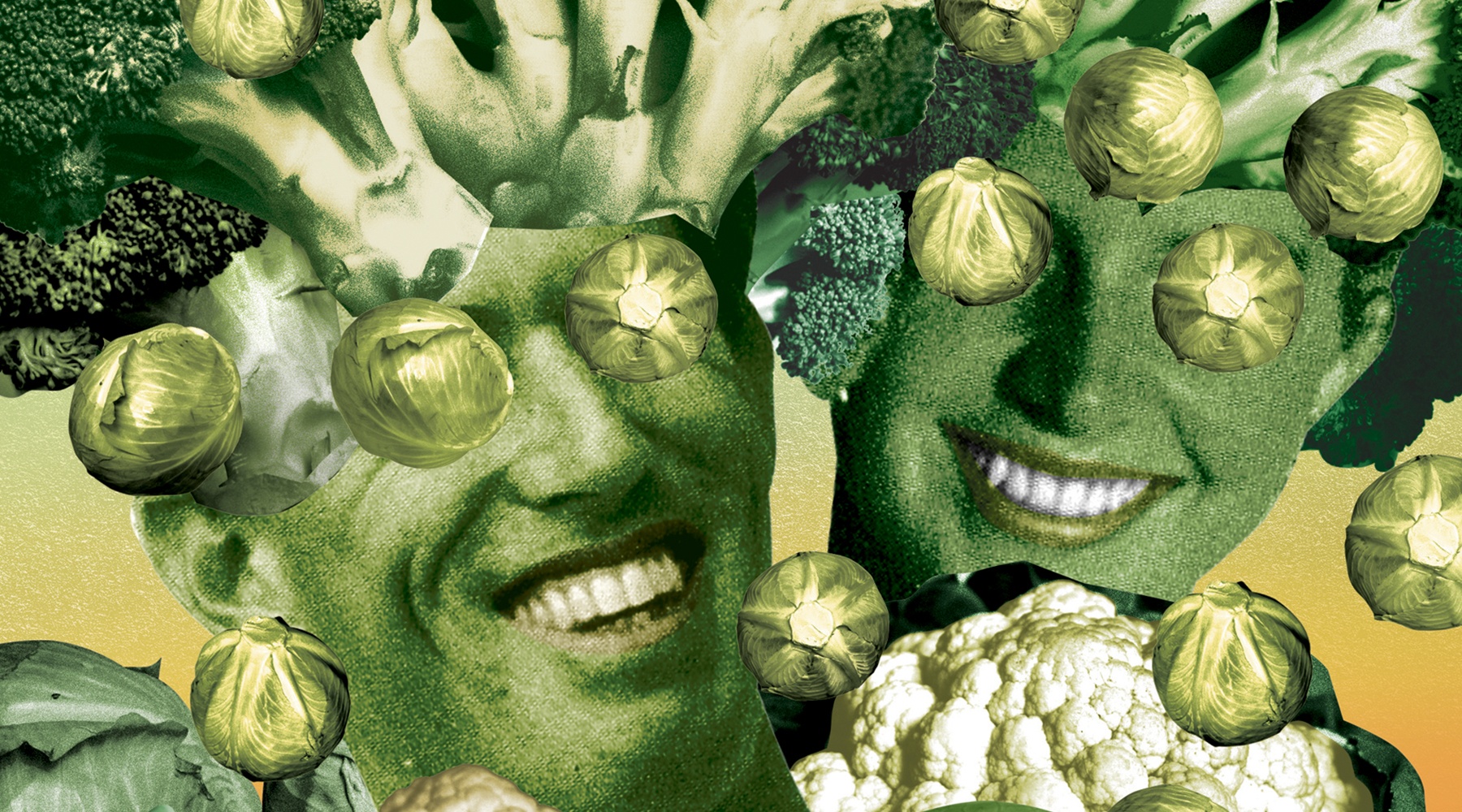Illustration: Doug Chayka
We all know regular servings of food from our gardens are important for good health. Now, a new research project at OMRF aims to show how a chemical found in a host of vegetables could help prevent vision loss.
With a four-year grant from the National Eye Institute, Dr. Scott Plafker will study whether a compound that’s naturally produced in broccoli, cabbage, cauliflower and Brussels sprouts can protect eyes as they age. Called sulforaphane, it’s previously been shown to guard cells from stress and to have anti-cancer effects.
“The positive effects of sulforaphane are so widespread that it is in about 30 clinical trials at this very moment,” says Plafker, a scientist in OMRF’s Aging and Metabolism Research Program. Researchers are currently testing its effects on conditions ranging from autism to epilepsy. “With this grant, we’re going to look at its protective effects specifically in age-related macular degeneration.”
Age-related macular degeneration is a leading cause of irreversible blindness among the elderly in the U.S. The disease is characterized by death of the light-sensing photoreceptor cells in the macula region near the center of the retina. As a consequence, patients progressively lose their central vision.
With the new grant, Plafker and his OMRF research team will study whether sulforaphane can preserve vision by maintaining and protecting the layer of cells in the retina that supports the function of light-sensing photoreceptors. Dr. Michael Boulton from the University of Alabama at Birmingham School of Medicine and Dr. Raju Rajala from the Dean McGee Eye Institute will also collaborate on the project.
“I’m very excited about this, because sulforaphane is readily available in vegetables,” says Plafker, who joined OMRF in 2011. “People can get it with ease, and they can get it without prescriptions or high costs. That’s the best kind of treatment.”



